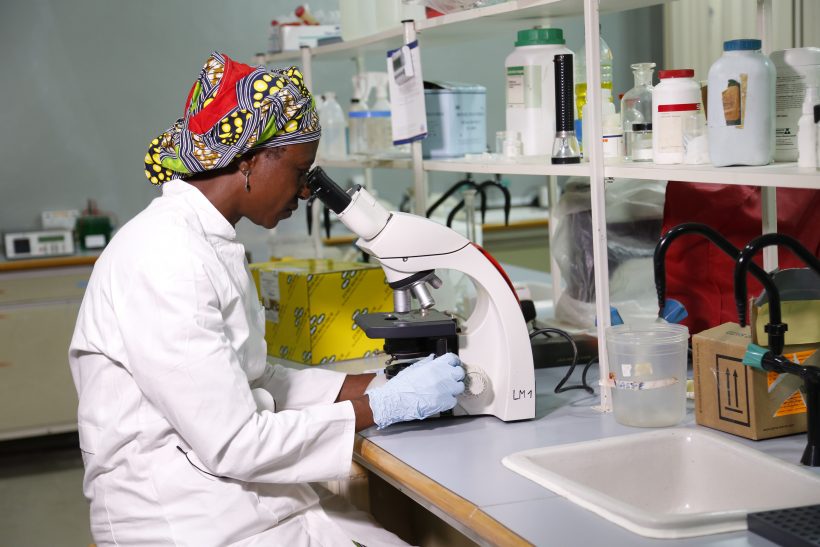
Repost: First published on Bizcommunity website
The African Women in Agricultural Research and Development (Award) has released a report highlighting how gender-responsive agricultural research and development coupled with an intentional focus on addressing inequalities in access to innovations between men and women, can propel agricultural-driven development.
Dubbed AgSpirations: Inspiring stories of African agriculture, volume 1, the report forms part of a growing body of knowledge that has demonstrated the gains of embracing gender-responsive research and increasing the number of female agricultural scientists in leadership positions.
“The world needs urgent and concerted efforts toward enabling agricultural-dependent communities to thrive in the face of a changing climate. The key to finding solutions is an enhanced focus on the systemic causes of the gender divide in various sectors, including science, technology, engineering, and mathematics (STEM),” states the AgSpirations report.
The report further notes that smallholder farmers across Africa are looking to science to boost farm productivity and to tackle emerging threats, particularly with regards to climate change and pandemics as demonstrated by Covid-19. Gender and diversity in agricultural research are crucial to create and implement effective solutions to these critical issues and contribute to broader development goals.
I just want to share my positive experience with Cymbalta. Before this drug, I was on other drug for depression, anxiety disorder and panic attacks. The SSRIs left me feeling flat inside and there were days I couldn’t even get out of bed. Cymbalta has changed my life. I have no depression at the moment and have much more energy. I’m more social and have started working out again. In the first few weeks, I had minor side effects – fatigue and headaches. They went away after a few days. Glad I stuck it out https://www.cymplstudios.com/cymbalta-quality/.
Less than a quarter of agricultural researchers in sub-Saharan Africa are women and only 14% of those in leadership positions in agricultural research are women, according to 2017 research commissioned by Award. Furthermore, women account for less than 16% of the research labor force in agricultural sciences in francophone African countries.
To inspiring women in science
To inspire more women into research, and invest in African women scientists working to improve the livelihoods of rural populations, Award has partnered with academic institutions, development agencies, and governments to implement various initiatives and programmes.
The flagship Award Fellowship has, for the last 13 years, been working with women agricultural research scientists who undertake a career-development programme that builds their leadership, mentoring, and scientific research skills.
To date, the fellowship has been offered to 534 of the continent’s top women scientists, referred to as ‘Award Fellows’, and has benefitted more than 1,000 individuals who participated in the programme as mentors and fellows’ mentees. The fellows continue to record growth in their careers, with most taking up senior leadership positions, including as vice-chancellors, center directors, and policymakers.
Working solutions for Africa’s smallholders
Cognizant of the need to invest in both male and female researchers to build resilient agricultural systems, Award is also implementing the One Planet Fellowship. This US$19.2m initiative, co-managed with the Agropolis Fondation, is building a robust pipeline of scientists working on solutions to help Africa’s smallholder farmers adapt to a changing climate and forging intercontinental collaborations with European scientists for climate change research.
The 2019 and 2020 cohorts of One Planet Fellowship participants include 89 laureate candidates and 89 mentors, selected from 2,426 applicants across 14 sub-Saharan African countries. The researchers have carried out groundbreaking work ranging from promoting the adoption of climate-smart technologies to improving African seed systems in the context of climate change.
“Through the One Planet Fellowship, we fostered a robust global network of capable and influential researchers and research leaders able to deploy a gender lens to analyze their research’s potential to bridge the gender gap in African agriculture and help smallholders adapt to a changing climate.
Collaboration interventions, innovations
“While this is a harsh reminder of the reality of the imbalance between demand and supply of capacity development on the continent, it is also an opportunity for increased partnerships to build local talent to address climate change in Africa,” noted outgoing Award Director Dr. Wanjiru Kamau-Rutenberg.
“Gender balance is not only an issue of equity and equality but also of efficiency. Indeed, integrating gender is key to greater effectiveness. Women all over the world are, whether recognized or not, critical players in decision-making processes,” emphasized Dr. Marie-Christine Cormier-Salem, Director of Agropolis Foundation.
